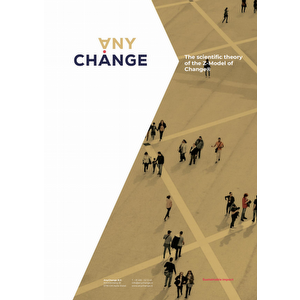The Z-model of Change® offers a refreshing perspective on the world. It helps you quickly identify the real causes behind problems.
Often we are so busy solving problems that we forget it's more effective to address their causes directly. This approach is more sustainable, though initially challenging. It requires honesty, trust, and personal leadership
Why did we develop this model?
We developed this model because we wanted to understand why organizations often act in contradiction to their own core values. Consider selling a product that a customer doesn't really need, while 'honesty' is a core value. Or an employee being bullied, while 'collaboration and respect' are touted as core values. After observing these situations, we sought answers, leading to the creation of our model.
Learn more out our books
assortment

20001
The change perspective
Explore the business novel about change management. Follow Roy van Bergen, the director of RTech, as he navigates his company through a critical phase. Future-proofing is key as Roy and his team undergo profound changes. This book offers insights into personal, team, and organizational development, explained through the Z-Model of Change®. It also includes reflection questions for your own situation.

20002
HOW CHANGE WORKS ENGLISH EDITION
Change is constant and omnipresent. This book about the Z-Model of Change® provides insights into how change truly works. Starting from an individual perspective, it draws parallels to business, exploring the interaction between individuals and their environments and the tensions arising from environmental changes. This scientifically proven model is successfully used in altering organizational strategies, cultures, and behaviors, and is effective in coaching.

20003
The scientific theory behind the Z-Model of Change®
The Z-Model of Change® was developed by Martijn de Zoete, drawing on cybernetics principles, the science of communication and control in humans and machines. This model, a form of systems thinking, defines systems as a subjectively selected collection of variables, adaptable to various contexts such as a lamp's functioning.
In organizational settings, the Z-Model of Change® applies this concept across several components: the perceived environment (market and future), current desired and undesired behaviors, future desired behaviors, evolutionary behavior patterns, verbal and internal behavior expressing knowledge, identity, and values, and goals with corresponding strategies. These elements collectively offer profound insights into organizational behavior and change.


.png)
.png)

